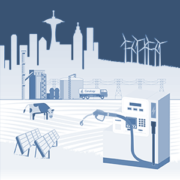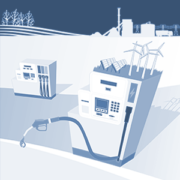Accentuating the positive – has optimism bias driven reductions in ILUC estimates?
Indirect land use change, often abbreviated to ILUC, refers to the expected expansion of agricultural area (and subsequent release of carbon from biomass and soils) when biofuel policies increase demand for agricultural commodities. In 2008, research led by Tim Searchinger using the FAPRI economic model[1] suggested that accounting for these ILUC emissions might eliminate the […]










